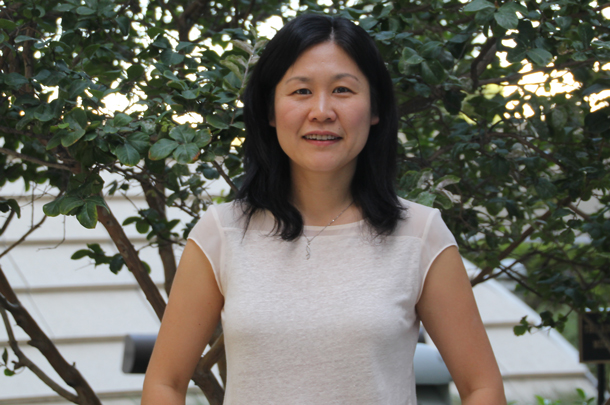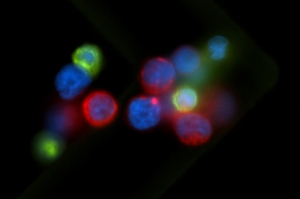USC Stem Cell researcher Min Yu, MD, PhD, is one of five early-career scientists to be named a 2015 Pew-Stewart scholar for cancer research. As part of this honor, she will receive $240,000 over four years to advance the understanding of metastatic breast cancer.
“I’m grateful for the support from the Pew-Stewart scholarship, which will provide the resources to propel my research forward,” said Yu, an assistant professor in USC’s Department of Stem Cell Biology and Regenerative Medicine and a member of the USC Norris Comprehensive Cancer Center.
As a postdoctoral scholar, Yu devised a technique for growing and multiplying circulating tumor cells (CTCs) in the laboratory after filtering them out from blood drawn from breast cancer patients. CTCs contain a subpopulation of the most deadly cancer cells that have the ability to break away from the primary tumor, enter the blood circulation and form metastases in other tissues, such as the bone, brain and lungs.
Metastasis is the leading cause of cancer-related death.
Yu is tackling the problem of metastasis by identifying the molecular adaptations and genetic mutations that allow CTCs to establish new tumors throughout the body. Her work could facilitate the development of strategies for blocking metastatic cancer on a patient-by-patient basis, ultimately saving lives.
Yu has devoted her energies to advancing patient care through innovative medical research for more than 15 years. Born and raised in the city of Qingdao in northeast China, Yu earned her medical degree at Shandong Medical University and completed a yearlong residency in neurology at Peking University Third Hospital.
After working with patients suffering from incurable inherited neurological diseases, Yu recognized the need to find new treatments through medical research. She joined the PhD program in genetics at SUNY Stony Brook University and Cold Spring Harbor Laboratory, where she developed an interest in breast cancer in the laboratory of Senthil Muthuswamy, PhD. She began researching CTCs during her postdoctoral training in the laboratory of Daniel A. Haber, MD, PhD, at Massachusetts General Hospital.
“During that time, I lost my own father to liver cancer and have completely devoted myself to relieving others from such pain,” she said. “As a result, I have dedicated myself to the field of cancer metastasis.”
Her dedication as well as her track record of success earned her the recognition as a Pew-Stewart scholar, nominated by the country’s leading cancer research institutions and supported by the Pew Charitable Trusts and the Alexander and Margaret Stewart Trust.
— Cristy Lytal



